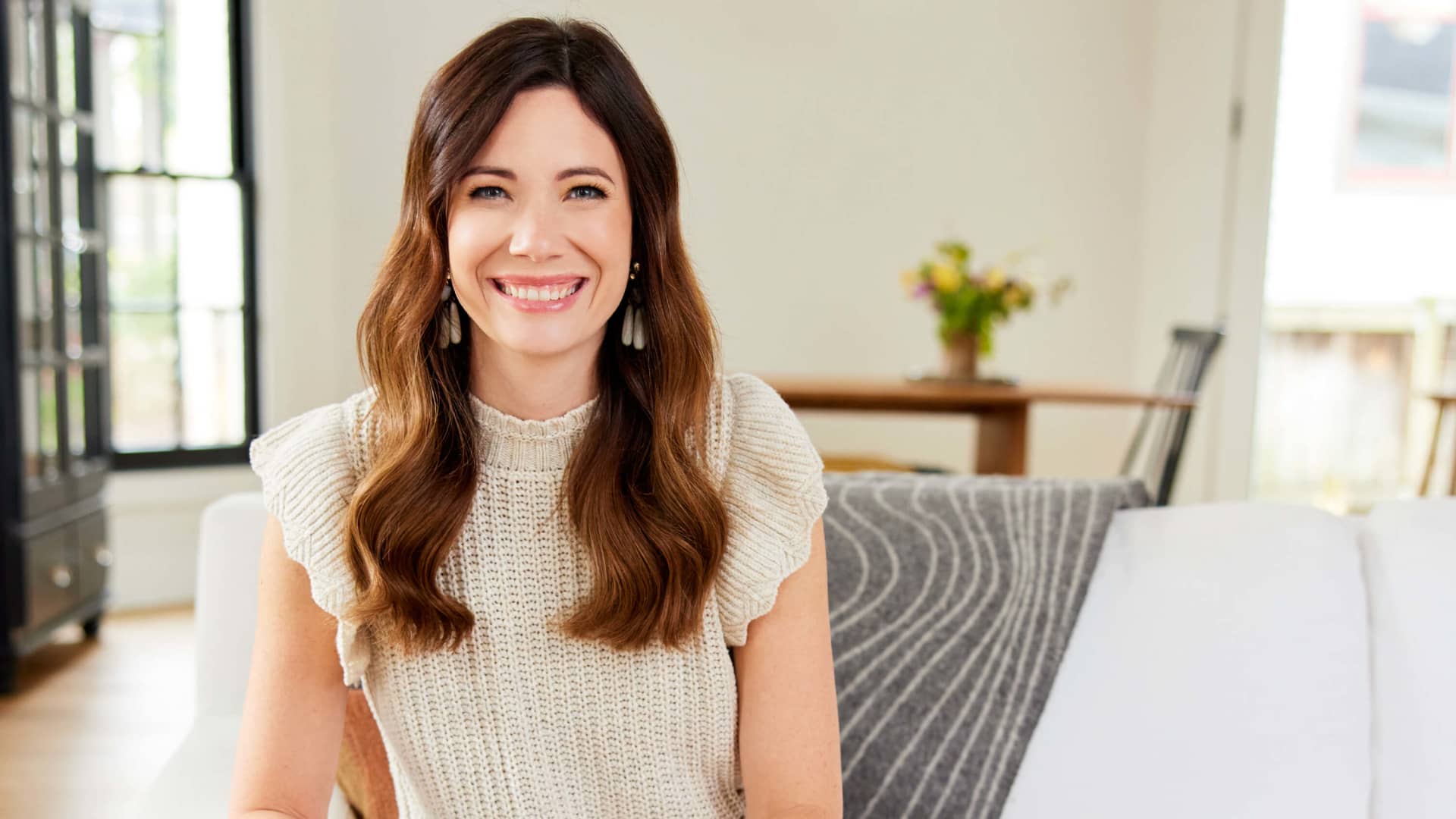
Money expert shares the 2-step rule she follows before buying a home: ‘it puts you in a completely different spot financially’
Cnbc is ON AIR - VIEW NOW
Please note: this is Beta feature.
- Select a language for the TTS:
- UK English Female
- UK English Male
- US English Female
- US English Male
- Australian Female
- Australian Male
- Language selected: (auto detect) - EN
Play all audios:
A home is usually one of the biggest — and most complicated — purchases of your life. Add on the fluctuating housing market and high mortgage rates, and the process can get even more
complex. That's why Rachel Cruze, a personal finance expert and co-host of the "Smart Money Happy Hour" business podcast, used her dad's home-buying formula before
purchasing her first house. The first step: Get free of any debt. Then, build up three to six months worth of emergency savings. "My husband and I followed the formula," Cruze
tells CNBC Make It. "I know that's really hard for a lot of people because of student loans, and the obvious debt that the average American racks up. But when you have no debts and
your income is all yours ... it puts you in a completely different spot financially." For many people, getting out of debt is easier said than done. And building an emergency fund, if
you don't already have one, can take time. Still, you need both before buying a home, says Cruze. Here's why, along with some expert advice on how to achieve both steps of the
formula. STEP 1: GET DEBT-FREE Many Americans carry some form of debt. For 35% of Americans, it's credit card debt, according to a January 2023 Bankrate survey. As of last year, 43.5
million Americans had federal student loans, according to the U.S. Department of Education. And 51% of student loan holders say their debt has delayed them from purchasing a home, a 2021 NAR
report found. Paying off debt before buying a home is a practical concern: Depending on how high your debts are, you could be denied a mortgage or incur a high interest rate on one, even if
your credit score is good. Becoming debt-free is a tedious process, but it isn't impossible. Take Jasmine Taylor, a 31-year-old who used a "cash stuffing" strategy to pay off
$23,000 in student loans and $9,000 worth of medical and credit card debt in a year. Cash stuffing means you only spend money that you have in cash. Practitioners typically use a zero-based
budgeting method, Taylor told CNBC Make It in March: "That means you start your budget with whatever your paycheck number is, and you give every dollar a place to go, down to
zero." Other strategies for paying off debt include completing a credit card balance transfer and following the snowball method, which is when you pay off the smallest balances first to
build momentum. CNBC Make It's loan calculator can help you visualize how long it might take you to get out of debt. STEP 2: BUILD A THREE TO SIX MONTH EMERGENCY FUND Saving for a down
payment is hard. In fact, 29% of first-time homebuyers say it's the most challenging part of the homebuying process, according to a 2022 report from the National Association of
Realtors. But once you finally stockpile enough cash, you can't stop there. Inspection fees, mortgage payments, moving costs, repairs and other household responsibilities require money,
too. That's where your emergency fund comes in. "[When] you own a home, you know very quickly that it's really expensive," Cruze says. "It's everything from
washers and dryers to heating and air. I mean, we had [two] ice machines that went out ... We got the bill and I was like, 'What? For an ice machine? That's how much it
costs?" You can build an emergency fund in a variety of ways. If you used cash stuffing to get out of debt, you can simply keep using the tactic to funnel money into a savings account,
for example. You could also benefit from putting any cash windfall you receive — from an annual bonus to a tax refund — directly into your savings, rather than immediately spending it.
Whatever method of saving you choose, setting "realistic expectations" is the most important part, says Cruze. "It takes a level of maturity just to look at the facts and say,
'OK, regardless of how I feel, regardless of how frustrated and annoyed I am, here is where we are financially and here are the numbers that have to work for us,'" she says.
"It may not be the home that you could have gotten four years ago, but this is the home you can have today." _DON'T MISS: WANT TO BE SMARTER AND MORE SUCCESSFUL WITH YOUR
MONEY, WORK & LIFE? __SIGN UP FOR OUR NEW NEWSLETTER!_ _Get CNBC's free __WARREN BUFFETT GUIDE TO INVESTING__, which distills the billionaire's No. 1 best piece of advice for
regular investors, do's and don'ts, and three key investing principles into a clear and simple guidebook._